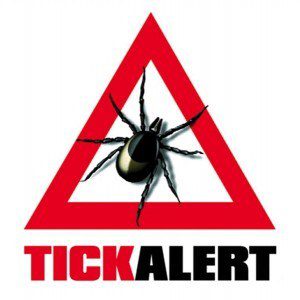If you find a tick or see your pet is struggling with some of the symptoms listed below, contact us immediately at Pymble Veterinary Clinic 9499 4010 or Killara Hospital 8350 5678 and we will advise you what to do.
This article covers the symptoms and treatment options of Tick Paralysis. For information about types of ticks, best practice for prevention and removal, go to Ticks & Fleas – Prevention for Pets.
Tick paralysis is a common and serious issue in our area. Any animal not on effective tick prevention may progress to paralysis signs if a tick is found. Statistics show us that sadly 10% of patients with tick paralysis will die from it.
As soon as you find a tick, we recommend you call us and try to bring your pet straight to the vet. We can then identify the tick, remove it, and determine if treatment is required.
Immediate removal is important if you are not able to get to the vet straight away– ideally use a tick hook, not tweezers or fingers as we don’t want to “squeeze” the tick as it is removed. If you do remove the tick then please bring it along in a container with you so we can identify what type of tick it is.
Mild Tick Paralysis
These animals might just be not quite themselves. Signs include
- Not wanting to eat
- lethargic
- Change in voice
- Unable to urinate
- Slight weakness when walking
Treatment: If a tick is the cause of these signs it is best to treat with the tick antiserum, because tick poisoning signs can get worse for 48 hours after the tick is removed.
Animals that are treated quickly with mild signs are often home and back to normal within one to two days.
Moderate Tick Paralysis
These animals are very obviously affected and are at risk of severe, life-threatening tick paralysis.
The signs of this stage include
- Weakness and wobbliness of legs, with difficulty rising
- Increased effort with breathing
- Cats may have a mild grunt as they exhale
- Dogs may have noisier breathing
Treatment: These animals are likely to die without treatment and the sooner it is started the better the outcome is likely to be.
Animals that are treated quickly with moderate signs are often home and back to normal within two to four days. Some animals take longer to convalesce, especially if they are very young, older or overweight, or a brachycephalic breed. It is likely that these patients will need overnight monitoring at our after hours partners NEVS (our local 24 emergency clinic in Terrey Hills )
Severe Tick Paralysis
These animals have life threatening tick paralysis.
The signs of this stage include
- Unable to stand
- Very obvious effort with each breath.
- Cats may have an exaggerated grunt noise
- Dogs may be retching and gagging. Often these animals will suddenly regurgitate froth into the back of their mouths. Because they are paralysed they cannot swallow resulting in aspiration pneumonia which puts the animal in critical danger.
Treatment: These animals need intensive care treatment in hospital.
These animals are best cared for at our emergency service where there is around the clock 24 hour care. NEVS has experienced staff available, even in the middle of the night.
End Stage Tick Paralysis
These animals cannot survive without life support. This is an extremely costly treatment option.
To try to save their lives they can be placed on life support or ventilation at NEVS our emergency service.
These patients are kept anaesthetised and a ventilator controls their breathing. As well as ventilation, intravenous fluids are carefully administered, blood tests performed, medications given, hourly physiotherapy and eye care, bladder control, regular chest radiographs and constant monitoring. NEVS looks after these patients on a fixed daily rate and has remarkable success rates for these cases.
Animals may require ventilation for anything from 2 days to 10 days. When off the ventilator they are in intensive care for a number of days before being well enough to go home. Intensive early treatment and monitoring can often avoid your pet getting end stage tick paralysis.
Costs
Tick treatment is often quite costly and with the more serious stages of tick paralysis it is both a huge emotional and financial investment. At The Village Vet we try to keep you as informed as possible of the costs involved on a regular basis. This is also true of NEVS. Deposits for treatment are usually needed. As always we are here to help you and do what is right for you and your pet.
Sources
- Article Written by Dr Lisa Shaw BVSc MRCVS, Veterinarian, The Village Vet
- Article Edited by Dr Martine Perkins BVSc (Syd Hons) MANZCVS MRCVS, Veterinarian & Owner, The Village Vet


